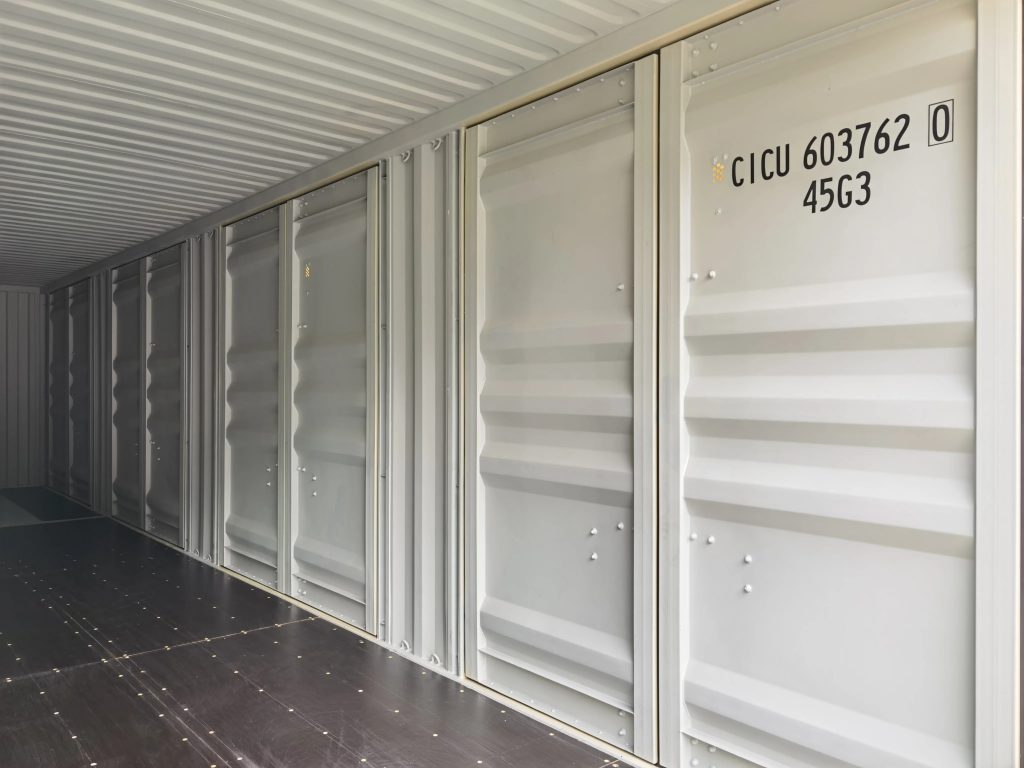The Best Cargo Containers Experts Are Doing Three Things

Exploring the World of Used Cargo Containers: A Comprehensive Guide
In recent years, the appeal of used cargo containers has skyrocketed, thanks to their flexibility and price. Originally developed to withstand made a post of global shipping, these robust metal boxes offer a plethora of applications beyond their initial function. From storage solutions to special housing tasks, used cargo containers are reshaping how people and businesses view area and sustainability. This post dives deep into the different elements of used cargo containers, their prospective uses, benefits, factors to consider when purchasing, and often asked questions.
The Basics of Used Cargo Containers
Cargo containers have been used for decades in the shipping industry. Once they reach completion of their shipping life, a lot of these containers are sold at a portion of their initial cost. This opens a myriad of possibilities for people and companies wanting to utilize them for various functions.
Table 1: Common Uses for Used Cargo Containers
| Use Case | Description |
|---|---|
| Storage Solutions | Ideal for long-term storage of equipment, lorries, or products. |
| Workplace | Can be converted into portable offices for on-site work. |
| Living Space | Used in ingenious housing jobs, consisting of small homes. |
| Retail Stores | Adjusted into pop-up shops or special retail experiences. |
| Workshops | Acts as a work space for crafts or commercial activities. |
| Mobile Clinics | Used in healthcare for mobile centers in remote locations. |
| Occasion Spaces | Can be transformed into bars, lounges, or exhibition spaces. |
With these extensive applications, it's clear that used cargo containers provide ingenious solutions for numerous challenges.
Advantages of Using Used Cargo Containers
The advantages of utilizing used cargo containers extend beyond cost savings. Here are some crucial advantages:
- Durability: Constructed from weather-resistant steel, cargo containers can stand up to extreme ecological conditions.
- Affordable: Used containers are substantially more affordable than new ones, making them available for various budget plans.
- Sustainability: Repurposing containers is an eco-friendly choice, minimizing waste and the need for new materials.
- Versatility: Their modular design permits simple stacking, carrying, and repurposing.
- Security: Containers are lockable and offer a safe and secure storage alternative for important belongings.
- Mobility: Containers can be moved easily, making them perfect for short-term or changing places.
Table 2: Pros and Cons of Used Cargo Containers
| Pros | Cons |
|---|---|
| Inexpensive prices | May have cosmetic wear or damage |
| Versatile applications | Transportation costs may use |
| Easy to customize | Zoning policies may limit use |
| Strong and weatherproof | Possible rust and rust issues |
| Quick delivery accessibility | Minimal personalization options |
Factors to Consider When Buying Used Cargo Containers
When thinking about the purchase of a used cargo container, a number of aspects ought to be examined:
- Container Condition: Check for rust, damages, or leaks. An extensive assessment is essential to ensuring the container satisfies your needs.
- Container Size: Common sizes consist of 20-foot and 40-foot containers. Consider what you plan to save or construct and pick appropriately.
- Local Regulations: Research local zoning laws and regulations regarding the usage of cargo containers in your location.
- Transport Options: Understand the logistics of transferring the container to your wanted place.
- Personalization Needs: If modifications are anticipated (windows, doors, electrical systems), guarantee that the container can accommodate these modifications.
- Acquiring Source: Investigate reliable dealers or auctions to ensure you're buying from a credible source.
Table 3: Different Sizes of Cargo Containers
| Size | Dimensions (L x W x H) | Approx. Volume | Typical Use |
|---|---|---|---|
| 20-ft Standard | 20' x 8' x 8.5' | 1,172 cu ft | Storage, small offices |
| 40-ft Standard | 40' x 8' x 8.5' | 2,390 cu feet | Bigger storage needs |
| 40-ft High Cube | 40' x 8' x 9.5' | 2,694 cu ft | Taller storage requires |
| 45-ft High Cube | 45' x 8' x 9.5' | 3,040 cu feet | Max. storage |
Frequently Asked Questions (FAQs)
1. Are used cargo containers safe for domestic use?
Yes, as long as you ensure correct ventilation and insulation, used cargo containers can be safe for residential use.
2. How can I customize a cargo container for use as an office?
Modifications can include cutting windows and doors, adding insulation, electrical wiring, and air conditioning systems. It's advisable to seek advice from specialists who specialize in container modifications.
3. Can I put a cargo container on my house?
This depends on local zoning laws and guidelines. Consult regional authorities to see what is acceptable before buying.
4. How much does a used cargo container typically cost?
Prices can range from ₤ 1,500 to ₤ 5,000, depending on the size and condition of the container.
5. What upkeep is needed for used cargo containers?
Routine maintenance consists of inspecting for rust or rust, ensuring that locks and hinges work properly, and periodically looking for leakages.
Used cargo containers provide an innovative and economical service for various storage and construction requirements. Their sturdiness, versatility, and sustainability credit to their growing popularity among people and organizations. As interest continues to rise, understanding how to browse the procedure of purchasing and repurposing these containers becomes vital.
Whether considering a container for storage, a portable office, and even a distinct home, the world of used cargo containers uses interesting possibilities. By weighing the benefits versus prospective drawbacks and staying informed about policies and best practices, anybody can effectively incorporate used cargo containers into their lives or business. The pattern is not practically effectiveness but also about embracing sustainability and creativity in design.

